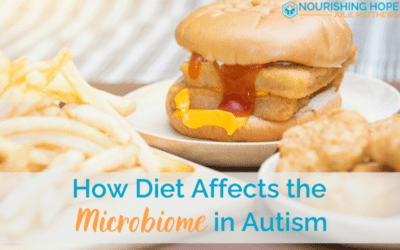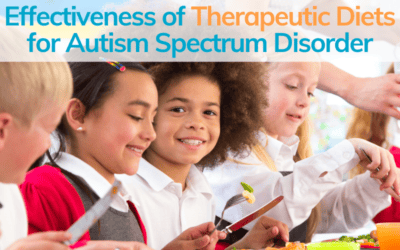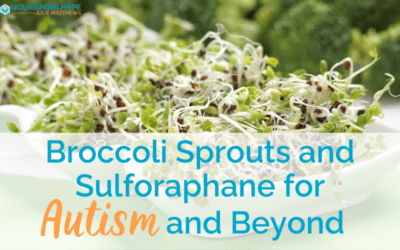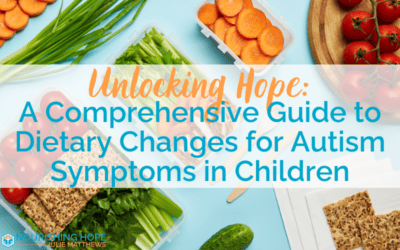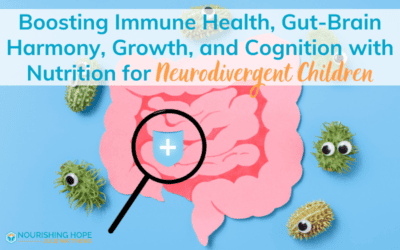Autism
For the last 20 years, my work has revolved around supporting individuals with autism and their families as they embark on nutrition intervention. I have also had the honor to participate in published research regarding the benefits of diet for autism. The science is clear, and as the families that work with me can attest, nutrition matters when it comes to health, learning, and behavior, especially in regards to autism.
Explore our articles on diet and nutrition intervention for autism spectrum disorders.
Healthy Halloween: Trick or Treat Reinvented
Halloween is almost here. I’ve put together some really fun and delicious ideas which offer you many options for allergen free foods and treats, crafts, and activities to enjoy during this Halloween. I even have some friends and clients who prefer a Halloween party...
How Diet Affects the Microbiome and Autism
The microbiome in autism is an avenue of important research. Studying the differences in microbiome composition for individuals with an autism diagnosis is yielding valuable insight. Here’s some recent research on the microbiome and children’s health, including kids...
Effectiveness of Therapeutic Diets for Autism Spectrum Disorder
In our survey, we looked at how frequently the diets were used. The topmost used diet was a gluten-free and casein-free (GFCF) diet. Second, was a healthy diet. Third was a casein-free diet by itself and fourth was a gluten-free diet by itself.
The GFCF diet is a popular diet among autism families and as we will see, provides good benefit and symptom improvement. Additionally, some of the diets that were not as commonly used, were highly rated and had some of the higher symptom improvements. For example, while the Feingold diet was only used by 74 people compared to 221 on the GFCF diet, the Feingold diet was the second highest rated diet with no adverse effects reported and was the number one for symptom improvement in 6 symptoms. So it’s advantageous to look not only at the most commonly used diets, but to also look at diets based on what symptoms that an individual is looking to address.
23 Years: ONE Idea for ADHD & Autism
This summer marks 23 years sharing ONE life-changing idea for ADHD & Autism that’s helped countless children and families worldwide. This ONE idea, Nourishing Hope - giving special attention to the food and nutrition children receive is fueled by scientific...
Broccoli Sprouts and Sulforaphane Benefits for Autism and Beyond
Did you know that broccoli sprouts can improve autism symptoms and other neuroinflammatory conditions? At first, I thought it was too good to be true until I looked into the science much further. How could this one tiny food do so much good?Sulforaphane Increases...
Unlocking Hope: A Comprehensive Guide to Dietary Changes for Autism Symptoms in Children
Insights into the influence of dietary changes on symptoms of autism are providing families with more hope than ever before. Autism has long been considered a “mysterious” brain disorder that begins/ends in the brain, and that affects observable social behavior. But...
Boosting Immune Health, Gut-Brain Harmony, Growth, and Cognition with Nutrition for Neurodivergent Children
In this article on the nutrition research, we delve into five compelling studies that shed light on the interconnected realms of immune health, gut function, mental well-being, and growth during crucial developmental stages. Our exploration begins with an in-depth...
Nourishing Hope Holiday Guide
Holiday Gift GuideI get many in my community who ask about my favorite products, not just in the kitchen but also when it comes to clean air, water, snacks, treats, and even self-care products. When we are looking to nourish our families in the healthiest ways...
Is Your Christmas Tree Causing Meltdowns? Healthy Solutions to Keep the Holidays Happy
The holidays are a wonderful time for being together with family and celebrating. But there are also holiday traditions that can inadvertanly lead to behavioral and emotional reactions. Holiday treats and decorations can cause biochemical overload and physiological...



